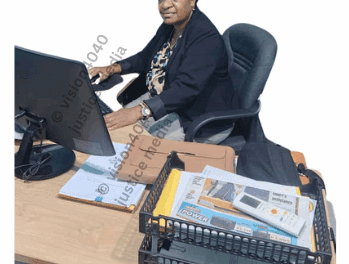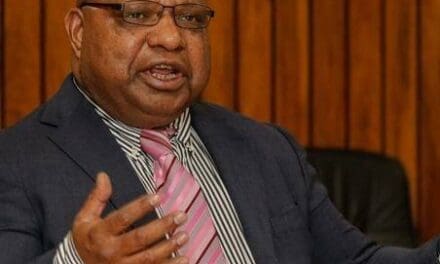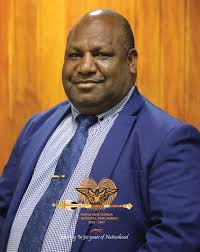Street Children Statistics Fatal: Intervention Needed

By ANGELA VAVAR
A SURVEY conducted by the Child and Family Services (CFS) in 2024 has identified over 200 street children on the streets of Port Moresby.
This was revealed in a one week programme which commenced on March 10 to 14 in Port Moresby, and it was during this time the national street children’s response joint task force committee was set up, with the primary goal of identifying street children, processing theirinformation and assisting to reintegrate children back into their communities, families, schools and providing health services.
“The increase of children on the streets of Port Moresby is primarily due to negligence and this will prove fatal if nothing is done to address this issue now,” says Child and Family Services Acting Chief Executive Officer Jerry Wap.
“We have a Lukautim Pikinini Act (LPA) which was passed in 2015, and this is a law to protect every child in this country, so if a parent, cousin or an uncle so forth are allowing a child to be in a situation where the children are vulnerable, then all persons responsible are in breach of that law.
Mr Wap said the LPA also applied to them because if CFS does nothing to protect and uphold the LPA and as a mouthpiece, then that is seen to be contrary to our mandated functions as well,” he said.
It was noted in the results that out of the street children 200 were male and 35 females. the By region, Southern leading by 128, Highlands at 95, Momase at nine andNew Guinea islands only three (3) and those having both parents at 102, those having a single parent only at 92, genuine orphans at 16 and unidentified persons at 25.
Within the National Capital District, the Electorate with the highest homeless children is from Moresby South at 105, North West 77 and North East at 53, and in total those not in school at 73. The Survey also showed that those in school but cannot attend for some reason at 162. The 162 children have been identified and reintegrated back into schools and with the assistance of Education department.
A rollout of a similar programme will be conducted in the major urban centres of Lae, Mt Hagen and Kokopo in the coming months.
Furthermore in 2020, K1 million from a government allocation of K4 million to the CFS was released to address the issue of street kids and K3 million would be used to create an official database for homeless, abused, underprivileged and unfortunate children in the country as well as upgrading the CFS office with staff to ensure it functioned independently and reporting to the minister responsible as previously the office went through the office of community development and religion.
“We have picked up from where the others have left off and we are yet to make a full review of past surveys from file. We will have that released for public information once we have audited all files. There are challenges but we are prepared to work through this.
“We are mandated to look at children who are outside of the classroom, why they are outside and what situation they are facing. We act as a mouthpiece for children who cannot speak for themselves. We want every family to protect their children by not allowing them onto the street because this is seen as negligence now, which is in breach of the child laws,” said Mr Wap.
“As much as possible we want to encourage parents and families to take responsibility and must take care of your children, if they don’t have the capacity then you have to find some means because the children came from a mother and father and not by accident.
“Most of it is poverty related, where parents cannot afford to look after the children, broken homes, no proper parenting despite some children having both parents. Other factors include those in school not provided proper meals, lunches or lunch money and no school resources such as school uniforms, bags, and stationeries.”
“So we have partnered with other government agencies such as education and health and other bodies and churches to address this because the Government does not have a center that can pick up the children and place them in, and later collect data. This kind of mechanism is not in place.
“Child protection is everyone’s business and if you are single and you do not have children, you still have a small brother or sister, niece or nephew or others you are connected to that you have a responsibility to care for also. That responsibility falls on ensuring that they are protected from social, mental, psychological and physical abuse.
“Every child has a right to be educated, fed, clothed, be housed, have access to health and other services, and generally grow up in safe family and they need full parental support or family support for those without parents. We are seeking financial support in this campaign but we are advocating to protect the rights of the children and especially those forced to the streets,” Mr Wap said.
He said that, as much as the CFS is working to ensure street children issues are being addressed, it is a big task and requires collaborative effort from Government agencies, Non-Government Organisations, Churches and Advocates.









Recent Comments